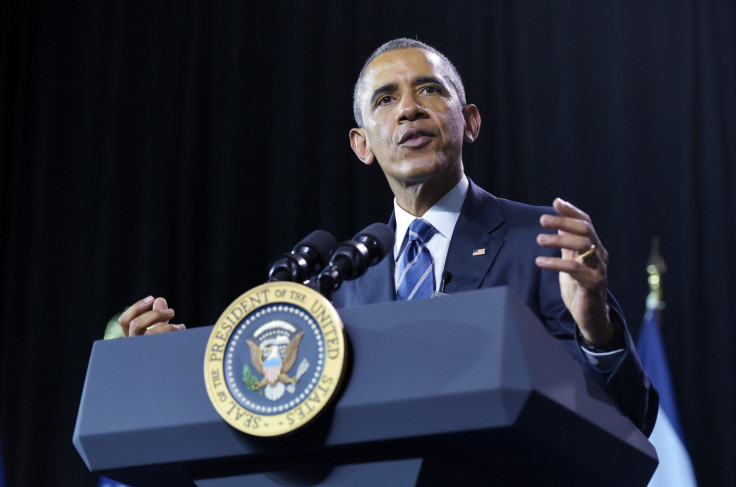President Obama Cuts Prison Sentences For 42 Drug Offenders

President Barack Obama has commuted the sentences of 42 people, who are serving time in the U.S. for drug-related offenses. According to reports, 18 of these were originally sentenced to life imprisonment.
There has been an increased push for clemency in the final year of Obama’s administration. The announcement brings the total number of inmates whose sentences have been commuted by the president to 348, which is higher than the combined total of the past seven presidents.
“He remains committed to using his clemency power throughout the remainder of the administration to give more deserving individuals that same second chance,” Neil Eggleston, White House Counsel wrote in a blog post on the official website.
Most names on the latest list are nonviolent offenders, although a few were also charged with firearms violations. The White House said that those being granted commutations had more than repaid their debt to society and earned this second chance. It also added that many of them would have already finished their sentences if they had been sentenced under current sentencing guidelines.
Many of the convicts had been serving time for crack cocaine charges. A study by the New York University showed that possessing 500 grams of powder cocaine carries the same penalty as possessing 28 grams of crack even though their molecular structure is similar. Critics argue that this disparity has unfairly harmed the lower income strata as power cocaine is much more expensive than crack.
Obama announced a comprehensive clemency program in 40 years in April, 2014. His administration also expanded criteria for inmates applying for clemency, targeting nonviolent offenders, who have behaved well in prison and would have received shorter sentences if convicted of the same crime a few years later. In this endeavor, he has even received the support of Republican lawmakers, but efforts this year have been delayed due to chaotic presidential campaigns.
Legal experts like Rachel Barkow, faculty director at the Center on the Administration of Criminal Law at New York University, say that unless a faster pace at granting commutations is not adopted, the program will remain a "lottery" for thousands of other convicts, Reuters reported.
© Copyright IBTimes 2024. All rights reserved.












